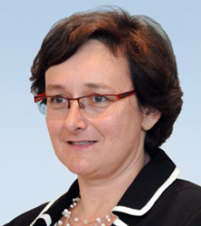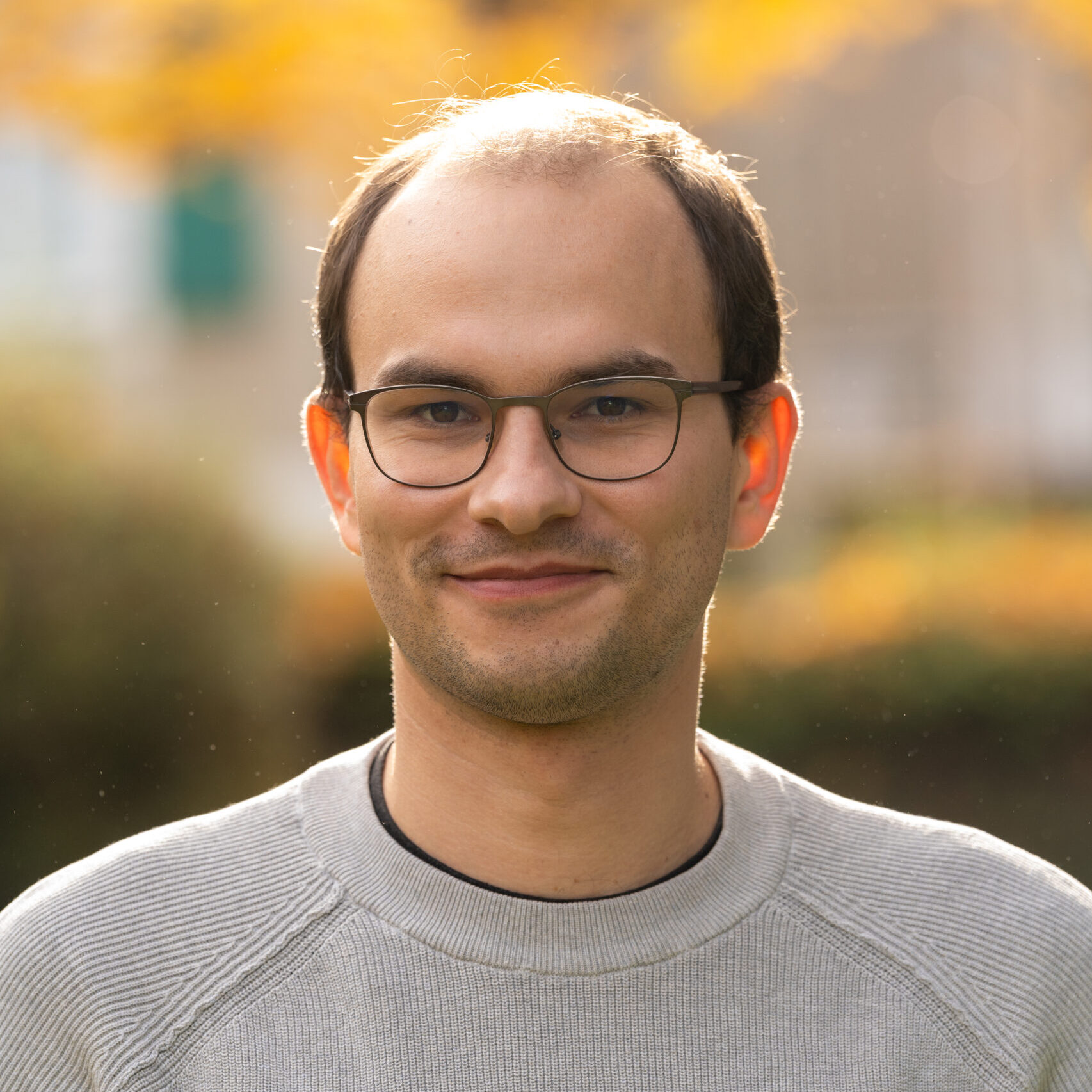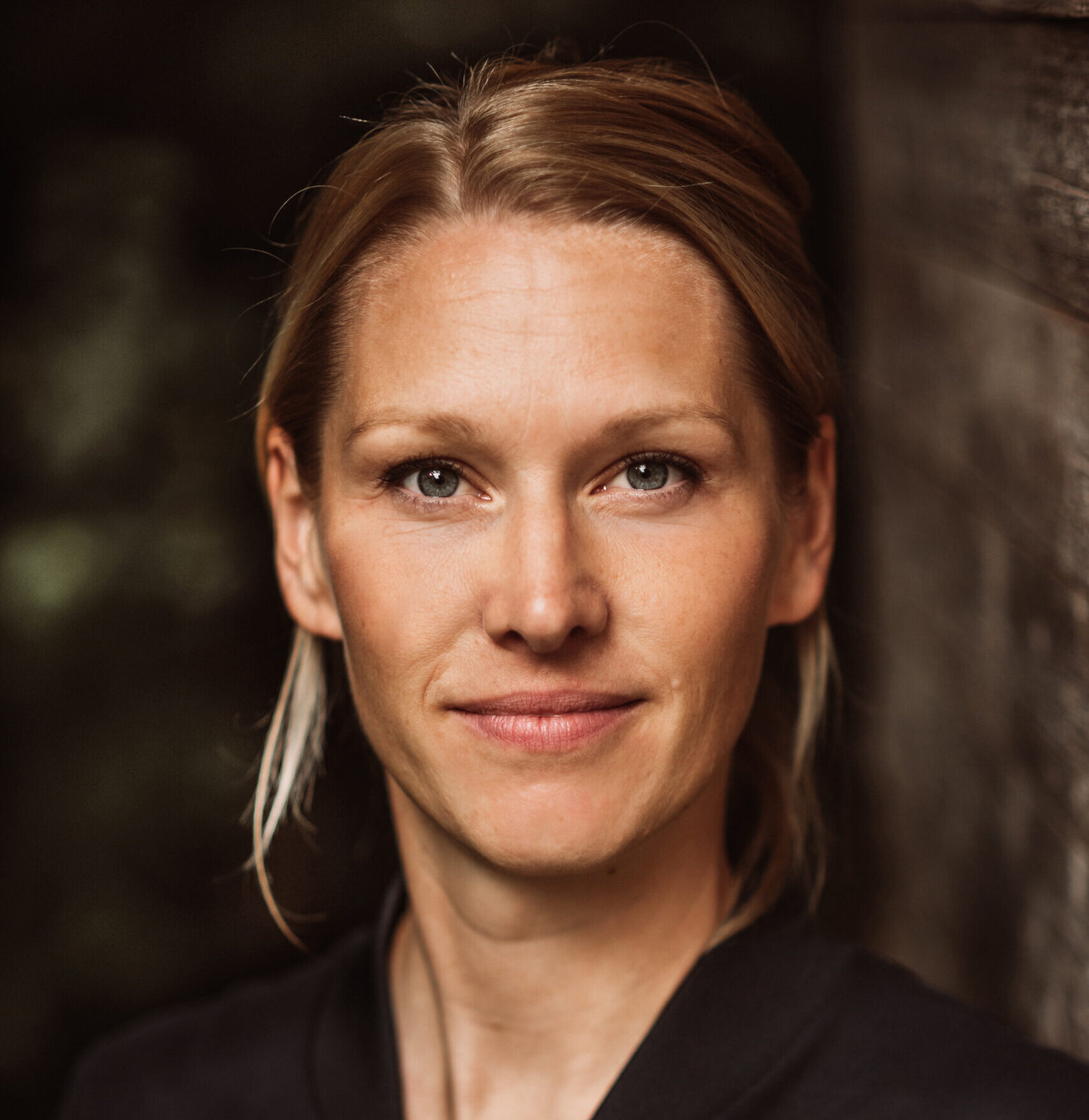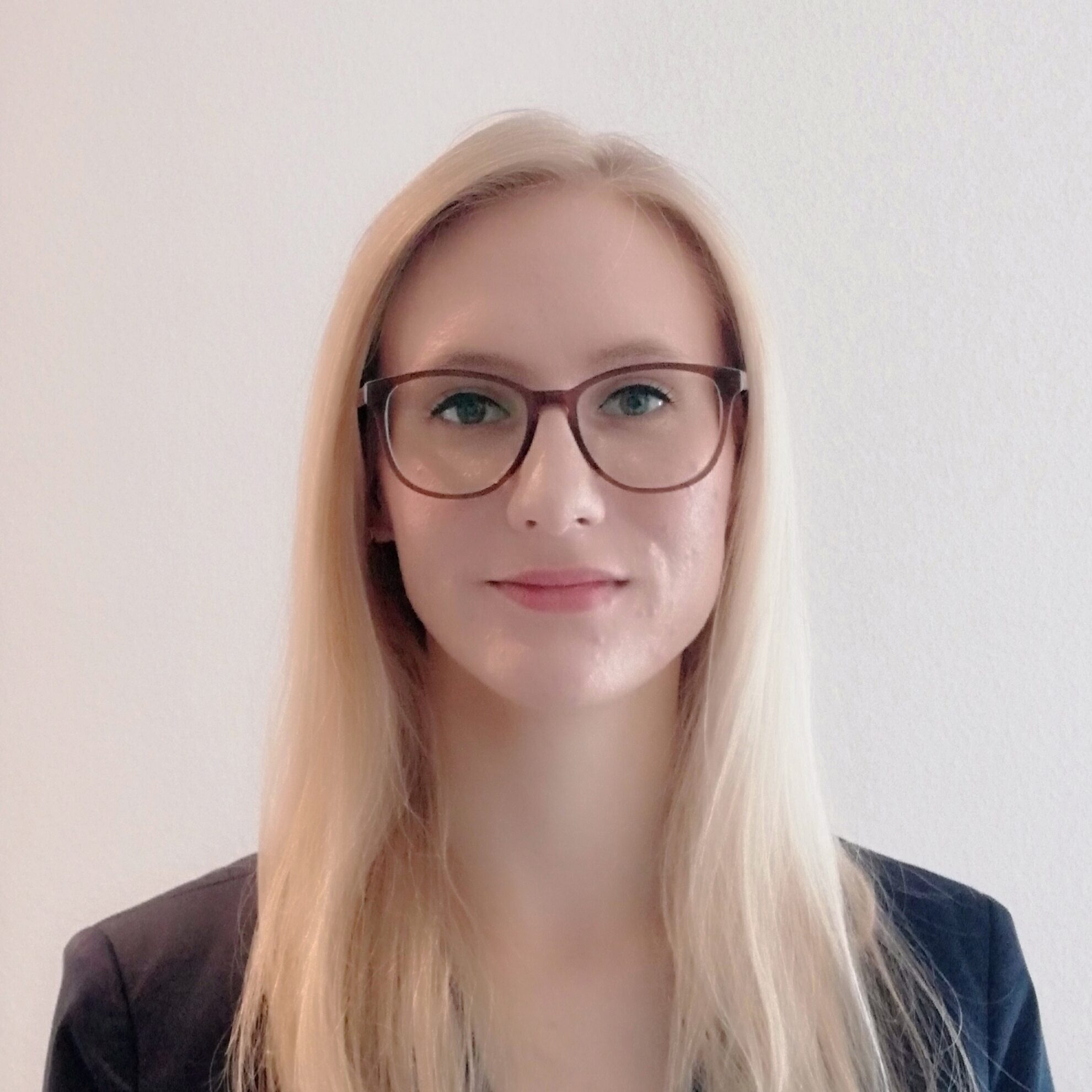Unser Team
The speaker

Prof. Dr. Marianne Kneuer
Professor of Political Systems and System Comparison (TU Dresden)
Prof. Dr. Marianne Kneuer is an expert in e-democracy, e-government and e-participation at the TU Dresden. As spokesperson for the project "Success factors for local e-participation", she coordinates the interdisciplinary cooperation and scientific orientation. She also heads the KDZ Competence Centre Crisis-Dialogue-Future and SCADS.AI, projects on local conflict resolution and digital participation. Her expertise is also evident in her advice to local authorities, for example in the introduction of the Tübingen BürgerApp, as well as in her role as Chair of the Board of Trustees of GESIS. Her aim is to promote the digitalisation of municipal participation processes and enable successful citizen participation.
Relevant publications
Datts, M., & Kneuer, M. (2022). Mobile politische Beteiligung-erneut nur die üblichen Verdächtigen? Eine empirische Analyse der Nutzung der Tübinger BürgerApp. Stadtforschung und Statistik: Zeitschrift des Verbandes Deutscher Städtestatistiker, 35(2), 28-35
Kneuer, M., & Datts, M. (2020). E-democracy and the Matter of Scale. Revisiting the Democratic Promises of the Internet in Terms of the Spatial Dimension. Politische Vierteljahresschrift, 61(2), 285-308.
De Blasio, E., Kneuer, M., Schünemann, W., & Sorice, M. (2020). The ongoing transformation of the digital public sphere: Basic considerations on a moving target. Media and Communication, 8(4), 1-5.
Kneuer, M. (2019). E-Government im internationalen Vergleich. Politik in der digitalen Gesellschaft| Band, 189.
Kneuer, M., & Harnisch, S. (2016). Diffusion of e‐government and e‐participation in Democracies and Autocracies. Global Policy, 7(4), 548-556.
Kneuer, M., & Salzborn, S. (2016). Digitale Medien und ihre Wirkung auf demokratische Prozesse. Zeitschrift für Vergleichende Politikwissenschaft, 2(10), 1-14.
Get in touch with us
Are you interested in digital participation and e-democracy? Use our contact form to get in touch with us. Our experts are at your disposal for enquiries and collaborations.
The professors

Prof. Dr. Christian P. Hoffmann
Professor of Communication Management
Prof Dr Christian P. Hoffmann teaches at the Institute of Communication and Media Studies at Leipzig University. He is also responsible for teaching in the field of political communication at the Institute of Political Science. He is the academic director of the Centre for Research in Financial Communication. His research focuses on strategic communication management, financial communication and political communication, with a particular focus on the challenges and opportunities of new media.
Telephone: +49 341 9735061
E-Mail: christian.hoffmann@uni-leipzig.de
Relevant publications
Rueß, C., Hoffmann, C. P., Boulianne, S., & Heger, K. (2023). Online political participation: The evolution of a concept. Information, Communication & Society, 26(8), 1495–1512. DOI: 10.1080/1369118X.2021.2013919.
Hoffmann, C.P., & Lutz, C. (2023). The contextual role of privacy concerns in online political participation. European Journal of Communication, 38(4), 363-379. DOI: 10.1177/02673231221139040
Heger, K., & Hoffmann, C. P. (2023) Feminist women’s online political participation: empowerment through feminist political attitudes or feminist identity? Journal of Information Technology & Politics, 20(4), 393–406. DOI: 10.1080/19331681.2022.2119320
Boulianne, S., & Hoffmann, C. P. (2022). The social, civic, and political uses of Instagram in four countries. Journal of Quantitative Description: Digital Media, 2. DOI: 10.51685/jqd.2022.001
Hoffmann, C.P., & Lutz, C. (2021). Digital Divides in Political Participation: The Mediating Role of Social Media Self‐Efficacy and Privacy Concerns. Policy & Internet, 13(1), 6-29. DOI: 10.1002/poi3.225
Heger, K., & Hoffmann, C. P. (2021). Feminism! What Is It Good For? The Role of Feminism and Political Self-Efficacy in Women’s Online Political Participation. Social Science Computer Review, 39(2), 226-244. DOI: 10.1177/0894439319865909
Lutz, C., & Hoffmann, C. P. (2017). The dark side of online participation: Exploring non-, passive and negative participation. Information, Communication & Society, 20(6), 876-897. DOI: 10.1080/1369118X.2017.1293129
Hoffmann, C. P., Suphan, A. & Meckel, M. (2016). The impact of use motives on politicians’ social media adoption. Journal of Information Technology & Politics, 13(3), 239-256. DOI: 10.1080/19331681.2016.1169241.
Hoffmann, C. P., Lutz, C. & Meckel, M. (2015). Content Creation on the Internet: A Social Cognitive Perspective on the Participation Divide. Information, Communication & Society, 18(6), 696-716. DOI: 10.1080/1369118X.2014.991343
Books
Lorenz, A., Hoffmann, C. P., & Hitschfeld, U. (Hrsg.) (2020). Partizipation für alle und alles? Fallstricke, Grenzen und Möglichkeiten. Wiesbaden: Springer VS.
Book Chapters
Hoffmann, C.P. (2023). Gamification, Serious Games und politische Beteiligung. In N. Kersting, J. Radtke, & S. Baringhorst (Hrsg.), Handbuch Digitalisierung und politische Beteiligung (online first). Wiesbaden: Springer. https://doi.org/10.1007/978-3-658-31480-4_49-1
Lutz, C., & Hoffmann, C. P. (2021). Inequalities in online political participation: the role of privacy concerns. In Hargittai, E. (Ed.), Handbook of Digital Inequality (pp. 326-340). Edward Elgar Publishing.
Lorenz, A., Hoffmann, C. P., & Hitschfeld, U. (2020). Dynamik und Herausforderungen der Ausweitung von Angeboten politischer Partizipation in Deutschland. In A. Lorenz, C. P. Hoffmann, & U. Hitschfeld, U. (Hrsg.), Partizipation für alle und alles? Falltricke, Grenzen und Möglichkeiten (S. 1-21). Wiesbaden: Springer VS.
Hoffmann, C. P. (2020). „Digital Divide “und „Gamification“. Chancen, Formen und Grenzen der digitalen Partizipation. In A. Lorenz, C. P. Hoffmann, & U. Hitschfeld, U. (Hrsg.), Partizipation für alle und alles? Falltricke, Grenzen und Möglichkeiten (S. 383-405). Wiesbaden: Springer VS.
Hoffmann, C. P., Weber, J., Zepic, R., Greger, V., & Krcmar, H. (2019). Dimensionen digitaler Mündigkeit und politische Beteiligung im Netz. In I. Engelmann, M. Legrand, & H. Marzinkowski (Hrsg.), Politische Partizipation im Medienwandel (S. 79-99). Berlin: Digital Communication Research. https://doi.org/10.17174/dcr.v6.4

Prof. Dr. Stefan Marshall
Lehrstuhlinhaber für Politikwissenschaft
Prof Dr Stefan Marschall has been W3 Professor of Political Science at Heinrich Heine University Düsseldorf since 2010 with a focus on the "Political System of Germany" and has been Vice-Rector for International Affairs and Science Communication since 2019. He was previously a W2 professor at the University of Siegen and held various deputy professorships, including at Justus Liebig University Giessen and the University of Duisburg-Essen.
He completed his habilitation in 2004 at the University of Düsseldorf, where he had previously worked as a research assistant and assistant professor. He completed his studies at the Rheinische Friedrich-Wilhelms-Universität Bonn and the University of Pittsburgh (USA).
Telephone: +49 211 81-14689
E-Mail: Stefan.Marschall@uni-duesseldorf.de
Relevant publications
Marschall, Stefan et al (2023). How algorithmically curated online environments influence users’ political polarization: Results from two experiments with panel data. In: Computers in Human Behavior Reports (2023); https://doi.org/10.1016/j.chbr.2023.100343.
Bormann, Marike, Carina Weinmann, Maike Behrendt, Stefan Wagner, Mira Warne, Florian Sauer, Stefan Harmeling, Stefan Marschall, Marc Ziegele (2023). “Datenreport: Ergebnisse einer Befragung zu Problemen in Online-Beteiligungsverfahren und den Potenzialen von Künstlicher Intelligenz zur Lösung dieser Probleme.” OSF. October 10. osf.io/q5u3d.
Marschall, Stefan (2022). Online-Wahlhilfen im digitalen Wahlkampf. In: Aus Politik und Zeitgeschichte, Volumen 72, Nr. 10-11, S. 42-48.
Borucki, Isabelle/Michels, Dennis/Marschall, Stefan (2020). Die Zukunft digitalisierter Demokratie – Perspektiven für die Forschung. In: Zeitschrift für Politikwissenschaft, Volume 30, Nr. 2, 359-378, DOI: https://doi.org/10.1007/s41358-020-00234-3.
Manavopoulos, Vasilis/Triga, Vasiliki/Marschall, Stefan/Wurthmann, L. Constantin (2019). The Impact of VAAs on (non-Voting) Aspects of Political Participation: Insights from Panel Data Collected During the 2017 German Federal Elections Campaign. In: Statistics, Politics and Policy. doi: doi.org/10.1515/spp-2018-0008
Gerl, Katharina/Marschall, Stefan/Wilker, Nadja (2017). Does the Internet Encourage Political Participation? Use of an Online Platform by Members of a German Political Party, Policy & Internet, doi: doi.org/10.1002/poi3.149, 87-118.
Gerl, Katharina/Marschall, Stefan/Wilker, Nadja (2016.). Evaluation von politischer Online-Partizipation – Demokratische Innovation vs. symbolische Politik, Zeitschrift für Politikberatung, Volume 8, 59-68.
Books/Special Issues:
Borucki, Isabelle/Kleinen-von Königslow, Katharina/Marschall, Stefan/Zerback, Thomas (2022): Handbuch politische Kommunikation, Wiesbaden: Springer VS.
Marschall, Stefan/Borucki, Isabelle/Michels, Dennis (2020). Zeitschrift für Politikwissenschaft, Special Issue: Die digitalisierte Demokratie. Politik und Kommunikation zwischen Daten, Netzwerken und Algorithmen, Heft 2/2020.
Book chapters:
Marschall, Stefan, Möltgen-Sicking, Katrin. (2022). Online-Partizipation von Bürgerinnen und Bürgern. In: Klenk, T., Nullmeier, F., Wewer, G. (eds): Handbuch Digitalisierung in Staat und Verwaltung. Springer VS, Wiesbaden. doi: doi.org/10.1007/978-3-658-23669-4_24-2.

Prof. Dr. Christian Pentzold
Professor of Media and Communication Studies
Prof Dr Christian Pentzold has been Professor of Media and Communication Studies at Leipzig University and Co-Director of the Center for Digital Participation since 2020. He was previously Professor of Communication and Media Studies at Chemnitz University of Technology and Junior Professor at the University of Bremen from 2016 to 2019. His research has taken him to renowned institutions such as the Oxford Internet Institute, the Berkman Klein Center for Internet & Society at Harvard Law School, the Alexander von Humboldt Institute for Internet and Society in Berlin and King's College London. In the 2021/2022 academic year, he was a Lady Davis Fellow at Hebrew University in Jerusalem.
Telephone: +49 341 9735701
E-Mail: Christian.Pentzold@uni-leipzig.de
Relevant publications
Stein, Veronika; Pentzold, Christian; Peter, Sarah & Sterly, Simone (accepted): Digital Political Participation for Rural Development: Necessary Conditions and Cultures of Participation. In: The Information Society.
Stein, Veronika; Pentzold, Christian; Peter, Sarah & Sterly, Simone (2023): Sociotechnical Infrastructuring for Digital Participation in Rural Development: A Survey of Public Administrators in Germany. In: Communications: The European Journal of Communication Research Online first: https://doi.org/10.1515/commun-2022-0107
Stein, Veronika; Pentzold, Christian; Peter, Sarah & Sterly, Simone (2022): Digitalization and Civic Participation in Rural Areas. A Systematic Review of Scientific Journals, 2010-2020. In: Spatial Research and Planning, 80(3), 251-266.
Stein, Veronika & Pentzold, Christian (in prep.): Civic digital participation for rural development. Lessons from a German survey for LEADER regions in Central and Eastern Europe. In: Kolleck, Nina & Karolewski, Pawel I. (eds.): Practices of Citizenship in Central and Eastern Europe: Civic Education and Participation. Bristol: Bristol University Press.
Stein, Veronika & Pentzold, Christian (2023): Perspectives for Digital Participation in Rural Areas: Evidence From German Regions. In: Lorenz, Astrid & Anders, Lisa A. (eds.): EU Citizenship Beyond Urban Centers: Perceptions and Practices of Young People in East Central European Rural Areas. Cham: Springer Nature, 215-224.
Konferenzteilnahmen
Christian Pentzold & Veronika Stein: Digital Political Participation for Rural Development: Necessary Conditions and Cultures of Participation (2024, June). ICA Annual Conference, Gold Coast, Australia (full paper; Philosophy, Theory & Critique Division).
Christian Pentzold & Veronika Stein: Un/smart Villages. Technological Resources and Human Obstacles for Rural Development Schemes (2022, July). IAMCR Annual Conference, Beijing, China (Virtual Conference).
Christian Pentzold & Veronika Stein: Digitalizing Rural Development Processes. A Systematic Review of Scientific Journals, 2010–2020 (2021, July). IAMCR Annual Conference, Nairobi, Kenia (Virtual Conference).
Wie steht es um die Digitalisierung von Beteiligungsverfahren im ländlichen Raum? (2021, September). Netzwerk Stadt-Land Sachsen-Anhalt, Sommerakademie, Gut Mößlitz, Germany

Prof. Dr. Maria Wimmer
Professor for E-Government
Prof. Dr Maria A. Wimmer heads the Administrative Informatics / E-Government research group at the Institute of Information Systems and Public Administration. After studying computer science at the University of Linz, Austria, she spent two years conducting research in Italy, where she focussed on the holistic analysis and development of safety-critical systems in the area of train control centres. She then returned to Linz and specialised in e-government and e-democracy, where she completed her habilitation in Applied Computer Science in 2003.
From 2004 to 2005, she worked in the ICT staff unit of the Austrian Federal Chancellery and was responsible for interoperability, official signatures and training concepts for administrative staff. Since November 2005, she has headed the e-government research group at the University of Koblenz-Landau.
Prof Dr Wimmer researches and teaches in the fields of administrative informatics, systems analysis and information, process and knowledge management. Her work is characterised by a holistic approach to system development.
Telephone: +49 261 287 – 2646
E-Mail: wimmer@uni-koblenz.de
Relevant publications
Konferenz DigiLabs 2024 an der Universität Koblenz, 1-2. Juli 2024, Ko-Organisation, Moderation und Präsentation, URL: https://klips.uni-koblenz.de/qisserver/rds?state=verpublish&status=init&vmfile=no&publishid=160076&moduleCall=webInfo&publishConfFile=webInfo&publishSubDir=veranstaltung
Konferenzteilnahme an IFIP EGOV-CeDEM-ePart, 3.-5. September 2024, URL: https://dgsociety.org/egov-2024/ – relevante Publikationen mit Präsentationen:
* Spitzer, V., & Wimmer, M. A. (2024). Smart City Participation: Methodological approach to engage schools. In J. Ubacht, J. Crompvoets, C. Csáki, L. Danneels, M. Janssen, M. Rohde Johannessen, … A. Zuiderwijk, Proceedings of Ongoing Research, Practitioners, Posters, Workshops, and Projects of the International Conference EGOV-CeDEM-ePart 2024. Ghent University and KU Leuven, Ghent/Leuven, Belgium, September 1-5, 2024 (pp. 1–12). Aachen: CEUR/RWTH. Retrieved from https://ceur-ws.org/Vol-3737/paper10.pdf
LinkedIn Post: https://www.linkedin.com/feed/update/urn:li:activity:7237115993783689217/
* Hartmann, M., Pawelzik, S., & Wimmer, M. (2024). Comparative Analysis of Digital Twins in Smart Cities. In J. Ubacht, J. Crompvoets, C. Csáki, L. Danneels, M. Janssen, M. Rohde Johannessen, … A. Zuiderwijk, Proceedings of Ongoing Research, Practitioners, Posters, Workshops, and Projects of the International Conference EGOV-CeDEM-ePart 2024. Ghent University and KU Leuven, Ghent/Leuven, Belgium, September 1-5, 2024 (pp. 1–12). Aachen: CEUR/RWTH. Retrieved from https://ceur-ws.org/Vol-3737/paper11.pdf
LinkedIn Posts: https://www.linkedin.com/feed/update/urn:li:activity:7238220233218363392/
Konferenzorganisation und Panel zu Digitale Souveränität: Fachtagung RVI 2024, Wiesbaden, ko-loziert mit der Jahrestagung der Gesellschaft für Informatik, Wiesbaden, 25.-26. September 2024, URL: https://fachtagung-rvi.de/ sowie https://informatik2024.gi.de/hauptprogramm.html
The scientific staff

MA Bastian Stock
Scientific Coordinator
Bastian Stock studied environmental sciences as well as social and communication sciences at the University of Landau in der Pfalz. He completed his Master's degree in Political Science at the Technical University of Dresden. His focus was on participation research, in particular on the differences in the willingness of marginalised groups to participate.
In his professional career, Bastian Stock worked in marketing and content creation for over eight years. His main focus was on analysing figures and developing advertising strategies.
He is also politically active in his spare time, which led to a seat on the city council.
E-Mail: bastian.stock@tu-dresden.de

M.A. Johannes Donix
Research assistant
Johannes Donix studied sociology at the University of Leipzig (B.A.) until 2019 and at the Friedrich Schiller University Jena (M.A.) until 2023. Here, he researched topics from environmental and organisational sociology with a focus on "Sustainability and Social Transformation". In his master's thesis, he investigated the concept of "urban resilience" and the consideration and participation of residents in corresponding urban development plans. During his studies, he worked as a research assistant (2021/2022) at the Mannheim Centre for European Social Research (MZES) in the "STEMobile" project and as a working student in the field of data analysis at O.trend GmbH (2023/2024).
E-Mail: johannes.donix@tu-dresden.de

MA Thomas Feiler
Research assistant
Thomas Feiler ist seit 2024 wissenschaftlicher Mitarbeiter am Institut für Kommunikations- und Medienwissenschaft der Universität Leipzig und Mitglied des Center for Digital Participation. Zuvor studierte er an der Katholischen Universität Eichstätt-Ingolstadt Journalistik mit Schwerpunkt Literatur und Kultur (B. A.). Anschließend absolvierte journalistische Praktika bei deutschen und US-amerikanischen Zeitungen und studierte er bis 2023 Medienkommunikation an der Julius-Maximilians-Universität in Würzburg (M. Sc.). Dort war er zudem als studentische bzw. wissenschaftliche Hilfskraft am dort angesiedelten Schreibzentrum, am Lehrstuhl für Kommunikationspsychologie und Neue Medien sowie am Institut Mensch-Computer-Medien tätig. Auslandssemester verbrachte er am Fort Lewis College in Colorado und an der Universität Zürich.

Dr. Radomir Pestow
Research assistant
E-Mail: pestow@uni-koblenz.de

Dr. Nadja Wilker
Research assistant
Dr. Nadja Wilker ist promovierte Politikwissenschaftlerin und erforscht die Perspektive von Entscheidungsträgern und Verwaltungsakteuren im Kontext digitaler Bürgerbeteiligung.
Sie hat Kommunikations- und Politikwissenschaft (B.A.) in Münster und Politische Kommunikation (M.A.) in Düsseldorf studiert. Während ihrer Promotion an der Heinrich-Heine-Universität Düsseldorf hat sie die Rollen und Perspektiven kommunaler Mandatsträger im Kontext von E-Partizipation analysiert und mit einem interdisziplinären Team eine Übersicht digitaler Beteiligungsverfahren in NRW erstellt (www.monitor-online-partizipation.de). In den letzten Jahren konnte sie zudem als Referentin der Hochschulleitung Erfahrungen in der Praxis der Wissenschaftskommunikation sammeln und hat Transferformate für politische Entscheidungsträger entwickelt und organisiert.
E-Mail: nadja.wilker@hhu.de
Our student employees

Carlotta Brand
Wissenschaftliche Hilfskraft
Sophia Koderer
Student assistant
Raquel Muriel Garcia Hausding
Student assistant

Ben Langholf
Student assistant
